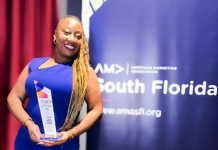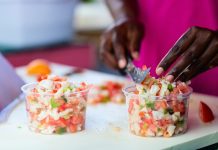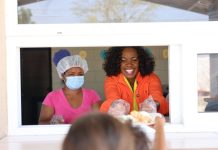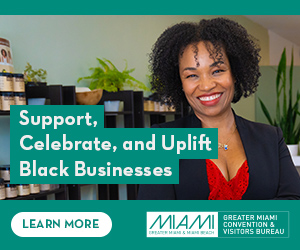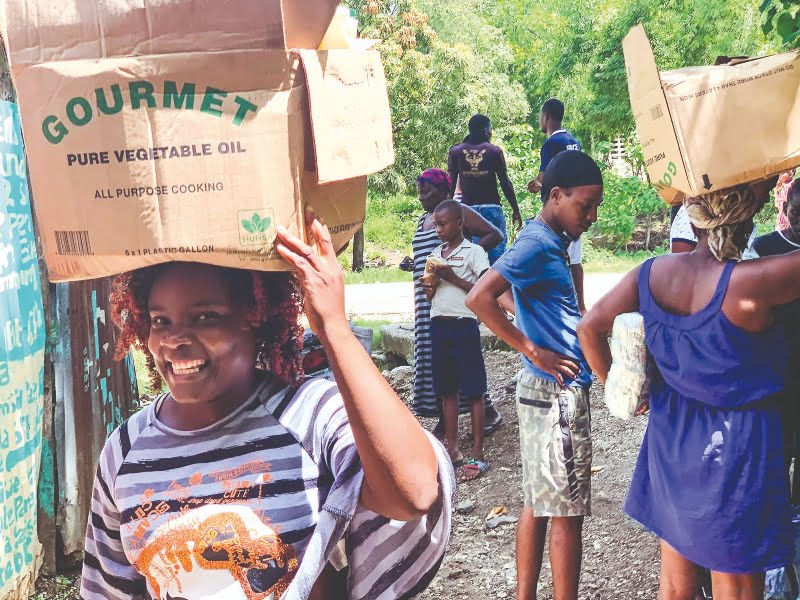
In the Caribbean’s fight against COVID-19, there are many battlegrounds: in the hospital wards with medical professionals lacking supplies to protect themselves, in homes where families struggle with food insecurity, and in children disconnected from their own education, left anxious about their future.
In response to these ever-growing needs, organizations large and small have emerged inside the Caribbean-American community to provide support on these front lines. Working within America’s own pandemic challenges, these groups have gotten creative, finding new ways to fundraise and channel support where needed. But in navigating this new normal there’s still a lot that needs to be done.
Food for the Poor
Christian-based non-profit Food for the Poor (FFTP) is no stranger to crisis. Founded in 1982, the group provides food, housing and financial aid to 17 countries throughout the Caribbean and Latin America. Even though the organization has seen almost 40 years of dire need, Mark Khouri, executive vice president and chief operating officer, calls these times unprecedented.
“People are lining up in long lines to get food because their income has [been] cut,” he said. “When you see that happening in a country like the United States of America, imagine what happens to those countries where their level of income is not the same.”
The organization, based in Coconut Creek, Fla., has sent more food than usual to countries throughout the region. Pandemic-related unemployment, especially from the tourism industry, has dramatically increased the number of people asking for help “just to be fed.”
“They were getting overwhelmed,” Khouri said of the program’s in-country partners. “We had to double down [with] so much more food.”
This need still persists. Rather than buying supplies in America and shipping them abroad, FFTP tries to stimulate the local economy by purchasing directly in the country they’re supporting and delivering locally. They urge readers to make a donation online so they can continue to support work on the ground.
Caribbean American Cultural Group
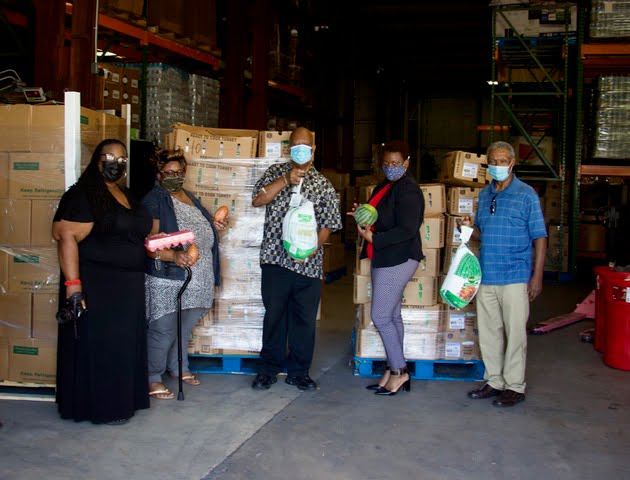
Since 1984, the Caribbean American Cultural Group (CACG) has merged fellowship and philanthropy among members of the Caribbean community in Port St. Lucie and the Treasure Coast. The organization has actively fundraised for the community through social activities such as domino competitions, sports days and their annual Treasure Coast Jerk Festival, as well as sponsoring scholarships, sourcing school supplies, organizing toy drives and building holiday gift baskets. But this personal, hands-on approach to giving back was disrupted by the pandemic.
“Just like most nonprofits and businesses [during] COVID-19, we have to adapt to the new environment,” CACG President Dawn Bloomfield said.
In response, they innovated, transforming their formal donation events into drive-thru donation programs. So far, the group has collected more than 11,000 pieces of personal protective equipment to support hospitals, both in Florida and Jamaica. “We started the drive and within two weeks the response was overwhelming,” Bloomfield said. “We partnered with the local businesses in the area, especially the Caribbean businesses, and also with the Nurses Association of Jamaica in England, who donated to the initiative.”
This ongoing program will collect supplies, especially for rural hospitals. For people who want to participate but feel uncomfortable leaving their homes, the CACG also accepts online donations through their web page.
Next, the group plans to source computers to help students in the Caribbean with remote learning. “I know that a lot of the high school students, especially in the rural areas, do not have the resources for remote learning, [like] a laptop or even a tablet,” Bloomfield said. “So we will also be shipping things next month [for] high school students to be able to continue their lessons from home.”







